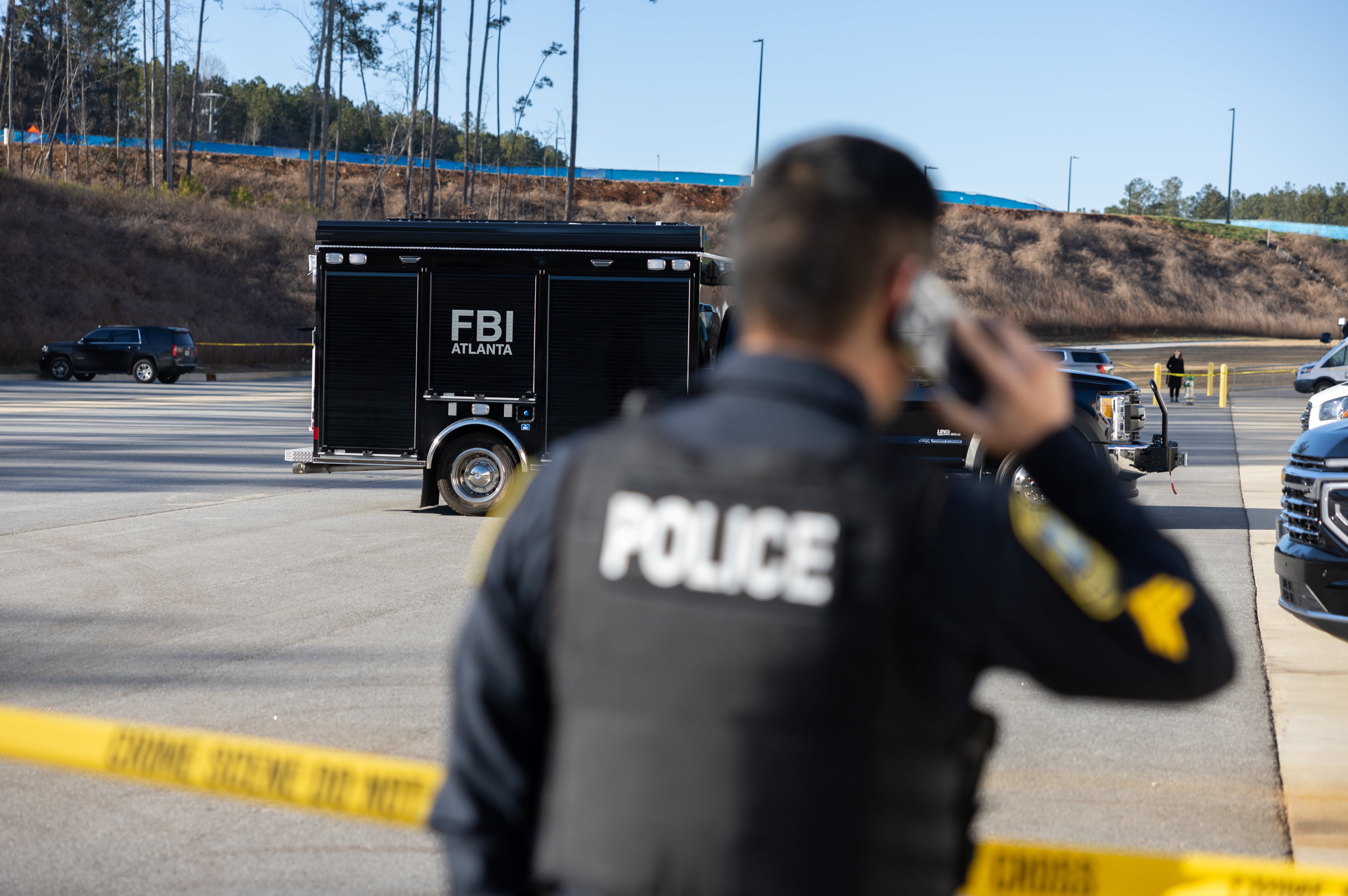Meadows, Fulton DA at odds over bid to move RICO case to federal court

Lawyers for former White House chief of staff Mark Meadows and the Fulton County District Attorney’s Office late Thursday made their final arguments as to whether Meadows’ election interference case should be transferred to federal court.
A ruling from U.S. District Judge Steve Jones is expected soon and could be one of the most consequential in the case against Meadows and 18 other co-defendants, which include former President Donald Trump. A number of lawyers for the defendants say if Meadows’ case is removed from Fulton Superior Court, all of his co-defendants’ cases could be transferred to federal court too.
Meadows is charged with one count of racketeering and one count of soliciting Secretary of State Brad Raffensperger to violate his oath of office by arranging the infamous Jan. 2, 2021, phone call during which Trump asked the secretary to “find” him 11,780 votes.
The 98-page indictment also alleges Meadows committed eight “overt acts” — such as his participation in that phone call — for an alleged criminal enterprise that sought to overturn the 2020 presidential results here.
Jones held a daylong hearing on the dispute Monday. The following day he asked if “at least one (but not all) of the overt acts” attributed to Meadows is found to have occurred under the color of his federal duties, is that enough to remove the Fulton case to U.S. District Court?
Meadows’ case
Meadows’ lawyers, as expected, said the answer was yes. In a court filing, they noted that federal law authorizes the removal of prosecutions against federal officers for “any act” committed as part of their official duties.
They asserted that Meadows needs only to show he had a “good-faith belief” that he was acting within the scope of his duties. The court filing also addressed each of the eight acts attributed in the indictment to Meadows and cited his testimony on Monday where he said he believed each incident was a duty of the chief of staff. Moreover, the state presented no evidence to the contrary, the filing said.
One overt act, for example, said Meadows asked White House personnel director John McEntee to prepare a memo outlining a strategy “for disrupting and delaying the joint session of Congress on Jan. 6, 2021,” and having Vice President Mike Pence count only half of the electoral college votes from certain states. Meadows testified he never made such a request and the state presented no evidence that Meadows arranged such a thing nor did the state introduce a memo prepared by McEntee, Meadows’ court filing noted.
Moreover, Meadows testified he had a broad scope of duties as chief of staff and they encompassed each of the eight acts attributed to him in the indictment, the motion said. Those duties included providing Trump close, confidential advice, acting as a gatekeeper for Trump’s schedule and gathering information on a wide range of federal interests and potential policies to be able to advise the president on a moment’s notice.
“The court should promptly permit removal and so notify the state court,” the motion concluded.
The DA’s case
The Fulton DA’s office, predictably, told Jones the answer to his question is no.
“The defendant’s prosecution commenced because he knowingly and willfully entered into an agreement to violate the Georgia RICO act,” Fulton prosecutor Donald Wakeford wrote. The overt acts alleged against Meadows are required only to demonstrate the conspiracy was actually “at work.”
The state also has evidence substantiating the allegations against Meadows, such as when he coordinated and participated in the Jan. 2, 2021, phone call with Raffensperger, the DA’s motion said.
“On the call, the defendant used the inclusive pronoun ‘we’ to refer to information possessed by the campaign and its lawyers, and he directly disputed the Secretary’s investigatory findings regarding the number of ‘dead voters,’ insisting, ‘I can promise you there are more than that,’” the motion said.
Meadows had also contacted deputy Secretary of State Jordan Fuchs, asking whether the Trump campaign could “speed up” a Fulton County signature audit by providing funding to the state, the motion added.
Meadows, the motion contended, “conspired not for any purpose related to his duties as chief of staff, but to transform Mr. Trump from a losing political candidate into a winning one, no matter what the outcome of the election had actually been. The conspiracy did not involve a common plan seeking to fulfill a federal objective or enforce federal law; it sought to fulfill an openly personal goal of Mr. Trump’s that the defendant acknowledged he shared.”
At the end of Monday’s hearing, Jones, an appointee of former President Barack Obama, said he aimed to issue a ruling “as fast as possible.” But he said if he hasn’t done so by Sept. 6, Meadows should plan to get arraigned that day by Fulton Superior Court Judge Scott McAfee, along with the other co-defendants, many of whom have waived their appearances.



